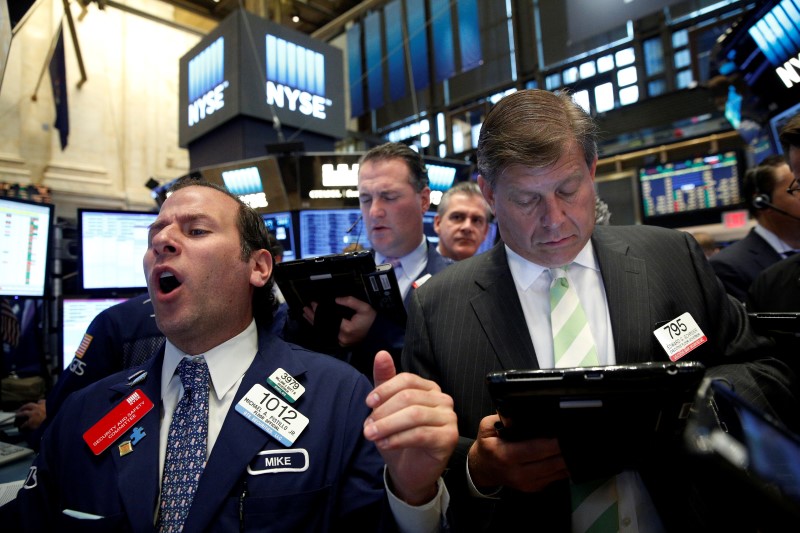By Lewis Krauskopf
NEW YORK (Reuters) - U.S. small-cap stocks have clawed back most of the losses they sustained after Britain’s vote last week to leave the European Union rattled market confidence in riskier assets.
But investors fret that smaller stocks would be more vulnerable than others to further political or economic uncertainty from the "Brexit," even though small companies seem less directly exposed to foreign economic fallout and appear reasonably priced compared to large caps.
"Relative valuation, small caps to large caps - small caps are cheap," said Chuck Carlson, chief executive officer at Horizon Investment Services in Hammond, Indiana. "But something like this, if the prevailing wisdom is the risk-off trade...that’s going to outweigh what would perceive to be the benefit of small caps not having as much exposure to the overseas sector." The Russell 2000, a widely used gauge for small-cap stocks, fell as much as 7.4 percent after the Brexit vote, giving back some of its 24 percent surge since mid-February. The Russell has rebounded, and is now off only 1 percent since the vote, slightly more than the 0.2 percent decline for the benchmark S&P 500 large-cap index.
Market crises of the past 20 years hit small caps particularly hard. A Credit Suisse (SIX:CSGN) analysis of seven crises, such as the bursting of the tech bubble and the 2008 credit crisis, found a 23 percent average pull-back for the Russell 2000 against 15 percent for the S&P 500.
Even in less-severe events that undercut equities, such as the S&P downgrade in 2011 of the United States or last August' s sell-off following the Chinese market collapse, the Russell tended to underperform, according to a Reuters analysis.
The international flavor of this shock could act as a buffer. Russell 2000 companies generate 21 percent of revenue from outside the United States, compared to 31 percent for S&P 500 companies, according to FactSet Research.
"The big shocks of the last year were China and the UK," said Eric Kuby, chief investment officer with Chicago-based North Star Investment Management. "These are shocks that don’t really affect these companies."
Aside from the late 1990s and early 2000s, small cap stocks are the cheapest they have been relative to large caps in more than 30 years, according to a recent Credit Suisse report, based on price-to-earnings, price-to-book and price-to-sales ratios.
While small caps may lag initially, "we view any near-term underperformance as a buying opportunity in small caps for the longer-term," the Credit Suisse analysts said.
Still at 17.9 times forward earnings estimates as of last Friday, the Russell 2000 looks expensive compared to its historic average of 15.6 times, according to Jefferies & Co. SMIDcap strategist Steven DeSanctis, who said the Brexit volatility only adds to his case that small-caps are poised to underperform over the next six to 12 months.
The second-quarter earnings outlook is broadly grim for small caps. Earnings for Russell 2000 companies are expected to fall by 9.6 percent from a year earlier, according to Thomson Reuters I/B/E/S, much steeper than the 4 percent decline projected for S&P 500 companies in the second quarter.
Investors also worry about buying at what appears to be the end of a cycle of economic expansion.
"Normally, this is the time you want to err on the side of large cap," said John Traynor, chief investment officer of People’s United Wealth Management in Bridgeport, Connecticut. "There might be some trading opportunities, but to make a structural shift to small cap – we would be advising against it."
